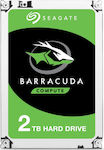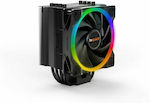The professional reviews of the 11900K/KF say, more or less, that it is garbage. And they have a point. With 200 euros less, there is the 11700K/KF, which practically the only difference is that it is about 0.3 GHz slower. With 100 euros less, there is the 10900K/KF and the 10850K, which in some cases are better (the extra cache memory they have plays a significant role). For the same money, there is the 5900X, which is practically superior in every way. I have heard that Ryzen may have some stability issues, but I don't know the details.
The reason to get the 11900K/KF is not because it is a good deal. I got it because, among other things, I wanted the fastest thing available for the Z490 Unify that I already had, and the AVX-512, PCIe 4.0, all-core boost at 5.1 GHz, and memory gear 1/2 sounded interesting. It is only for enthusiasts. Or for Intel fanboys, however you see it. Or it is one of those things you would do yourself but wouldn't recommend to a friend.
The power consumption is very high, but because it has a large die, it cools relatively easily (for the consumption it has). There is an option in the BIOS for active ABT (boost up to 5.1 GHz on all cores) along with a power limit of 250 Watts, and with no power limit. (Anyway, you can set whatever power limit you want from elsewhere). I concluded that ABT is not a good idea because it gives very high voltage and reaches 90-100 degrees even under moderate load (like Far Cry New Dawn). My cooler is the Noctua NH-D15S. With a good 360 AIO cooler, things would be better, and with a custom loop even better. (Edit: I got a Lian Li Galahad 360 which cools the ABT just fine under normal use (not stress test)). With the Noctua, I eventually set it to 4.7 GHz all-core without AVX offset with a nominal voltage of 1.26, which under load drops to 1.17 (LLC 6), and ring 42. I didn't have the headroom to do a stress test with a higher frequency because it already reaches 98 degrees even with all the fans at full speed in OCCT. Under normal use, it reaches up to 75 degrees under heavy load, which is normal.
I was a bit disappointed with the memory overclocking with the MSI Z490 Unify. The 10600K I had could run AIDA64 with memory 4533 18-18-18-36 and 4600 17-20-20-40. The 11900KF with gear 2 does not work at all above ~4450 MHz memory. I tried many combinations of voltages and very loose timings with the latest BIOS. So it's not the fault of the 11900KF, but the BIOS of the Z490 Unify which is not well-tuned for the 11th generation. With gear 1, I got it to 3600 12-13-13-28. The memory is 2x16 dual rank Samsung B-die (GSkill F4-4000C16D-32GTZRA). For gaming, gear 1 is better, even if the memory frequency doesn't go very high. With gear 2, it can achieve higher bandwidth, but it adds about 10ns latency compared to gear 1, and games are more sensitive to latency than to bandwidth. Quite a few benchmarks on the internet have gear 2, and it loses a bit of performance that way.
Edit: Now that the 12th generation has come out, the 12700K is clearly better than the 11900K. The only reason to get the 11900K (in my opinion) is if you already have a Z590 motherboard. If you have Z490, I would recommend the 10900K, which is on par and will have better compatibility.
Edit 2: The 11th generation has one advantage over the 10th, stability. The Skylake architecture has a design flaw that can cause cache errors, under certain conditions even at stock settings. Source: https://rog.asus.com/forum/showthread.php?123415-Maximus-13-and-Rocket-Lake-The-Rules-have-Changed
Edit 3: With the Z590 Unify-X, I took the same memory 3733 CL13 at gear 1. With more effort (and voltage on the memory controller at the limits of safety), I might have been able to reach 3800. With gear 2, I reached up to 4533. Although the dual rank B-die memory is tough for the memory controller, it seems I got a below-average memory controller. The 11th generation Intel generally struggles with dual rank memory at high frequencies. A single rank B-die I tried went to 4800 easily. And a single rank Hynix DJR worked at 5333, but the re-train stability was terrible. It could be the motherboard, or the microcode of the memory controller, I'm not sure. I hear that the Intel memory controller, when it's on the edge of stability at gear 2, loses stability just like that, and without reboot or memory training.



























